Leaders from industry, education and government came together for a panel to discuss the findings of a report from Primary Engineer and explore strategies for cultivating a vibrant skills landscape within the Scottish rail sector.
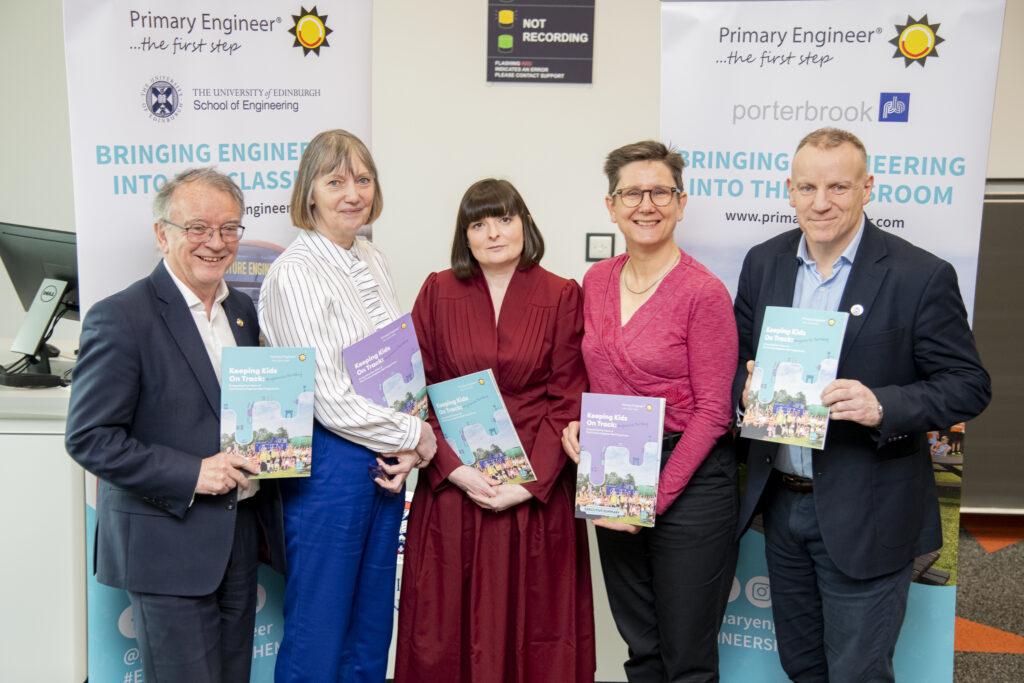
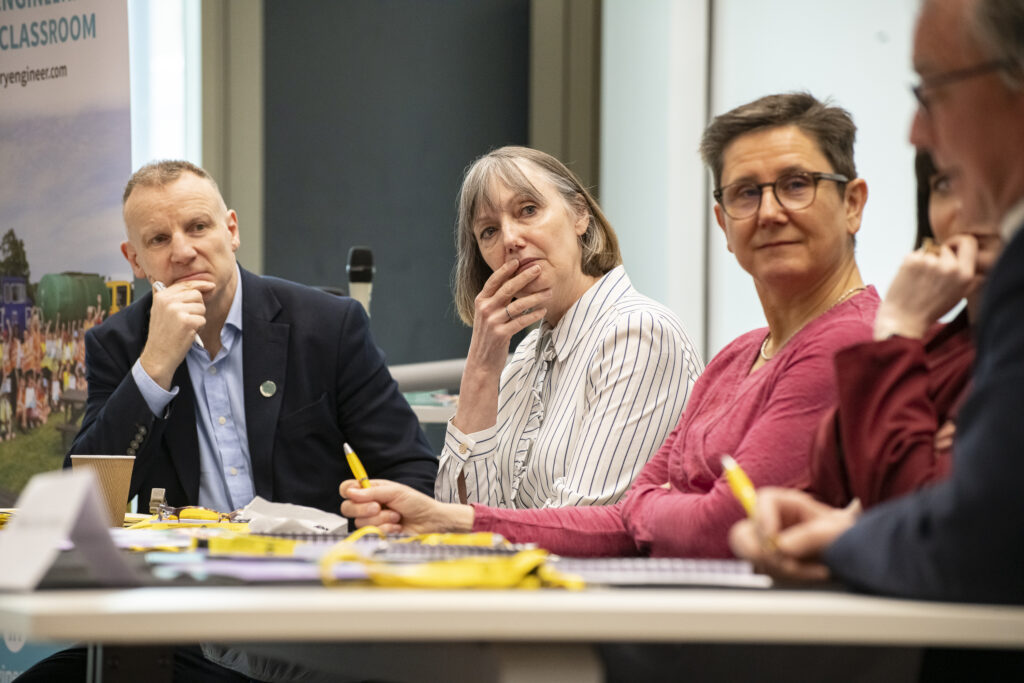
The report, titled “Keeping Kids on Track: Evaluating 5 Years of the Primary Engineer Rail Programme” sheds light on the significant positive impact the programme has had on primary school pupils across the UK. It has been running in Scotland, England & Wales and Primary Engineer are hosting three launches to address the specific needs of each education system.
For five years, the Primary Engineer Rail Programme has brought practical Rail Engineering into classrooms and helped inspire the next generation of engineers. Launched in 2018 with Hitachi Rail, the programme embeds engineering at the heart of learning as young pupils collaborate to design, build, and refine rail vehicle models. Over the course of five years the Primary Engineer Rail Programme has provided Rail Engineering learning opportunities for over 40,000 pupils.
The programme culminates in a Celebration Event where pupils test and challenge their designs and share what they have learned with engineering professionals. The report was launched with Scottish Engineering and The University of Edinburgh School of Engineering, who partner with Primary Engineer in Edinburgh. Panelists were able to see the impact of the Primary Engineer Rail Programme first hand, and the excitement this inspires amongst the pupils and teachers who take part.
Professor Gareth Harrison, Head of the School of Engineering, The University of Edinburgh said:
“We were delighted to host this joint event with Primary Engineer and Scottish Engineering to discuss how we can shape the future of Scotland’s rail industry together. Having been proud partners of Primary Engineer for many years, we have seen the positive impact the Rail Programme has on local primary school pupils and the important role it plays in inspiring them about career opportunities in the sector.
Today also marked this year’s Rail Programme celebration event which brought the pupils, teachers and engineers back together on campus to showcase and test out their model train creations. It was fantastic to see how this initiative ignites a passion for engineering in young minds.”
Dr Susan Scurlock MBE, Founder and Chief Executive of Primary Engineer, was also on the panel. Commenting on launching the report in Scotland she said:
“The findings of the report overwhelmingly support that the Primary Engineer Rail Programme is successful in its objectives and shows that our approach has inspired young people to think
differently about engineering – it has also helped them realise that anyone can be an engineer and sparked an interest in Rail Engineering.
It was amazing to be hosting this with The University of Edinburgh School of Engineering, they have been working with us for the best part of a decade and have been a core part of our success in Scotland. Huge thanks to our panelists Louise Shaw, Gordon Masterton, Lydia Fairman and our chair Paul Sheerin for sharing their expertise.”
Alongside the key findings of the report are next steps Primary Engineer are taking to ensure the programme continually improves and reaches more pupils, not only in Scotland, but across all devolved nations. The launch of the report in England will be hosted at Rail Live with Porterbrook on June 19th and 20th where school pupils will show off their engineering skills at the centre stage.
The programme continues to be available across England, Scotland and Wales thanks to the many partners who fund the programme, with over 300 schools and 14,500 pupils expected to take part in the 2023/2024 academic year.
The report is available from the Primary Engineer website.
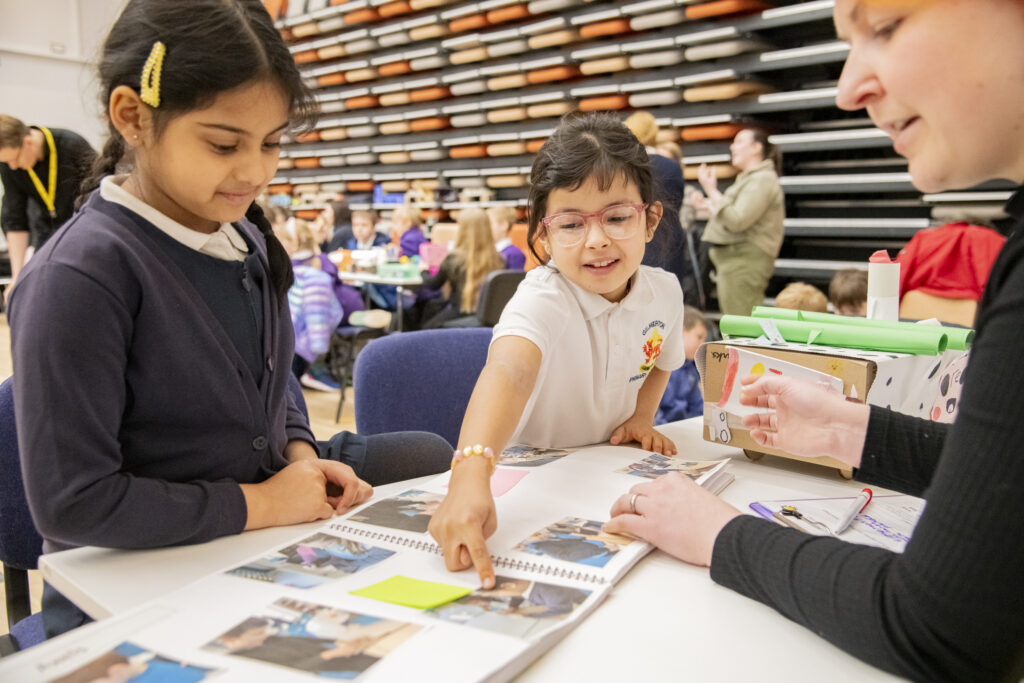
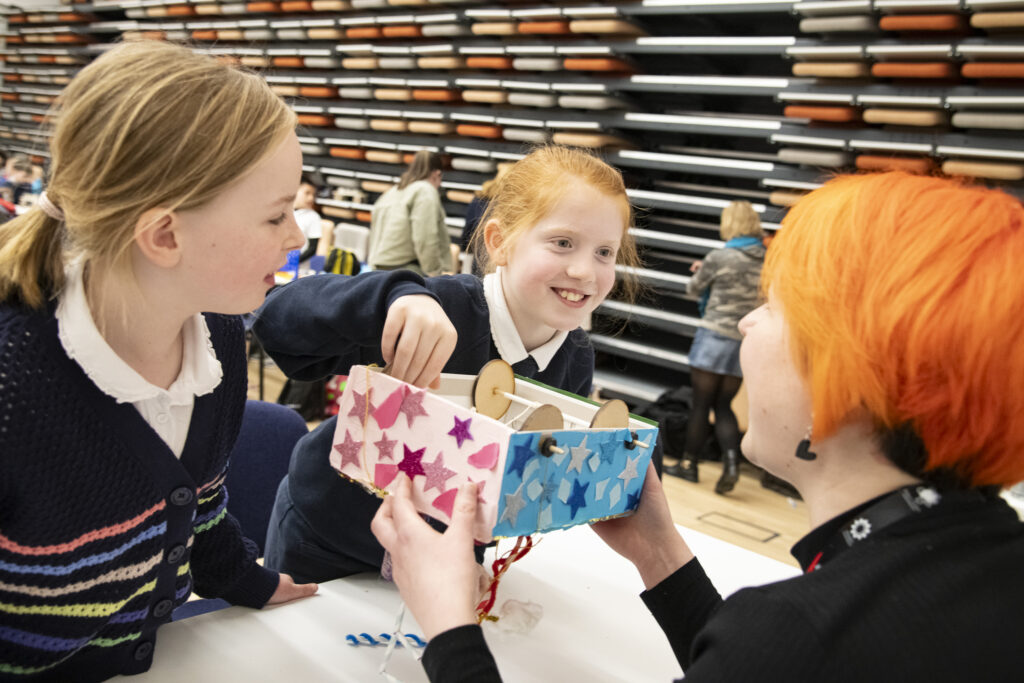


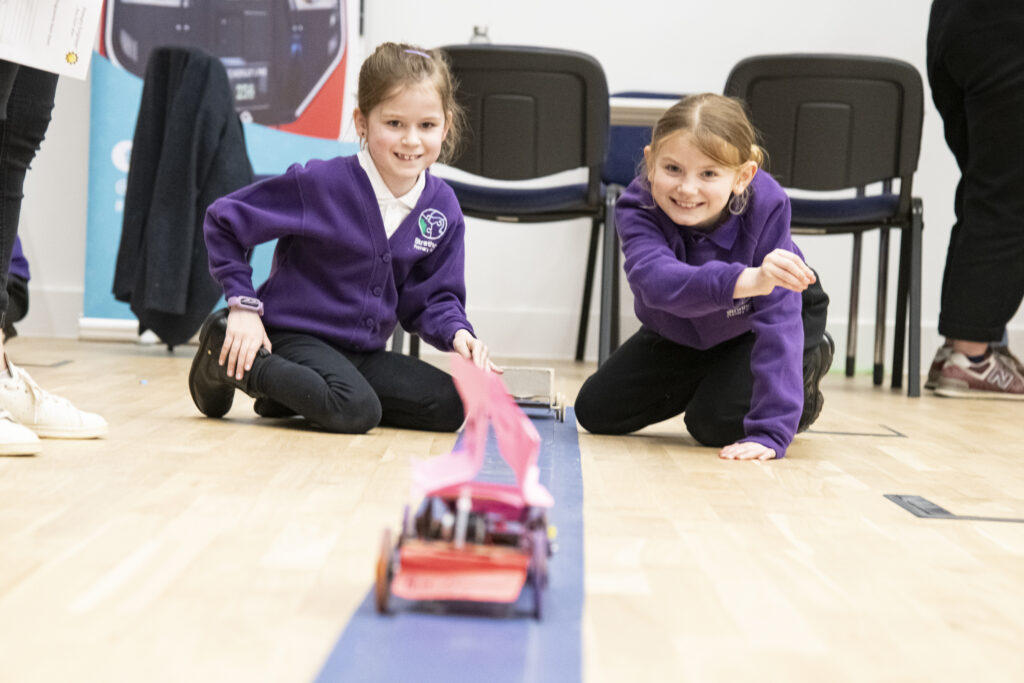


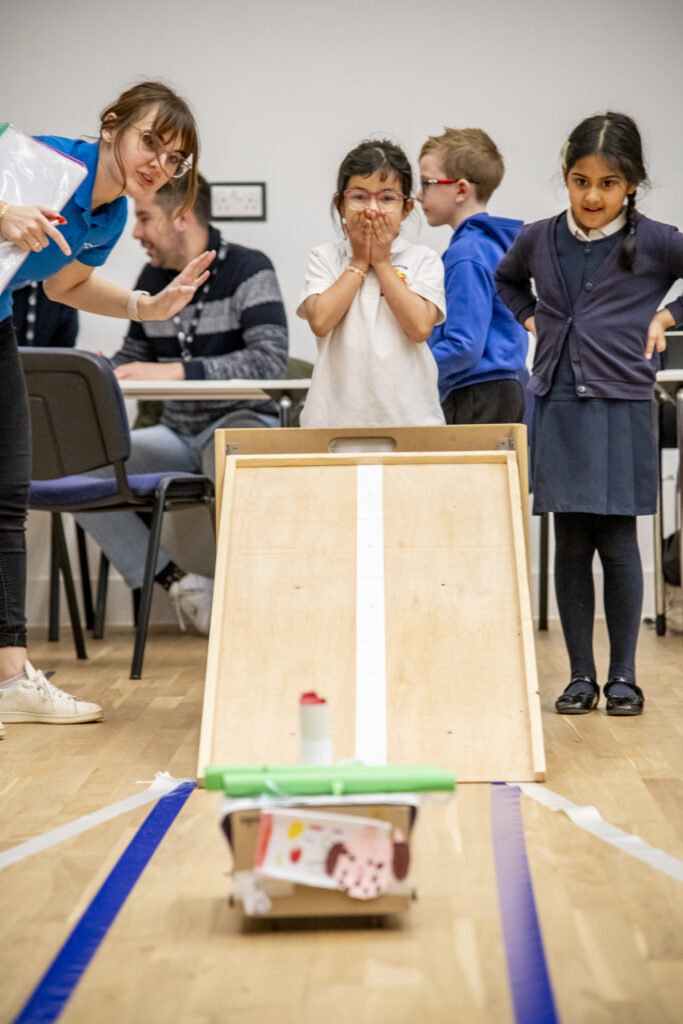
Editors Notes:
This press release was distributed by Primary Engineer, if you have any follow up questions please get in touch with their Head of Marketing and Communications
- Email: [email protected]
- Contact Number: 07732 900 121
Any photographs accompanying this Press Release or the “Keeping Kids on Track: Evaluating Five Years of the Primary Engineer Rail Programme” report are copyright to Primary Engineer unless otherwise stated.
About Primary Engineer:
Primary Engineer®, since 2005, have developed an engineering curriculum that spans Early Years, Primary, Secondary and Further Education institutions. Its core aims include; the development of children and young people through engagement with engineering, the promotion of engineering careers through inspiring programmes and competitions, the development of engineering skills for teachers and practitioners addressing the inequalities in engineering.
We developed a project-based learning approach to education which enables children and pupils to engage with practical math’s and science alongside creative problem solving and literacy. It has been described as STEM by Stealth® due to the integrated curriculum nature of the programmes which also develop resilience and curiosity.
Strong links to engineers and the industries they work in provides an opportunity for both pupils and teachers to expand their knowledge of careers, career paths and opportunities.
Further Details on the Primary Engineer Rail Programme:
The Primary Engineer Rail Programme offers schools an exciting project based learning experience that delivers Engineering to the heart of the curriculum. Through this programme,
primary school teachers are supported to introduce Rail Engineering and practical making to their pupils. Classrooms become design workshops, and pupils become ‘Engineers in the Making®’ as they collaboratively design, build and test their own rail vehicles. A series of structured lessons guide pupils to develop Engineering knowledge and skills such as problem finding, problem solving, adapting and improving, while discovering insights about the rail sector and modern engineering in the world around them.
Designed by Primary Engineer and pioneered in collaboration with Hitachi Rail, the Primary Engineer Rail Programme is now funded and supported by many key partners across the UK. It is estimated that over 40,000 Rail Engineering learning experiences have been provided by this programme across England and Scotland, and more recently in Wales. More than 13,000 experiences were provided in 2022–2023 alone. Despite its growth, the objectives of this programme remain the same: to inspire the next generation of engineers, to support a greater understanding and interest in Rail Engineering and to deliver Engineering into the heart of the school curriculum.
Although designed with a focus on Engineering, this project-based learning experience can also support interdisciplinary learning in other subject areas. Science and Mathematics can be used to explore the theory and design of rail systems and vehicles, while Art and Design and Technology/Technologies can be drawn on to build and test rail models. Geography and History can also be drawn on to understand the heritage of the rail sector in the United Kingdom, while Literacy skills are developed through collaborative working and the communication of ideas. These cross-cutting connections between subjects demonstrate the utility of bringing Engineering learning into school settings and the value offered by the Primary Engineer Rail Programme. The project-based approach to learning the topic of ‘Rail Engineering’ also allows the Primary Engineer Rail Programme to remain accessible across the devolved education systems of the United Kingdom, supporting a rich and far-reaching learning experience across nations. The successful participation of schools in England, Scotland and Wales demonstrates this capacity to support rail-themed Engineering learning across educational settings and curricula.






